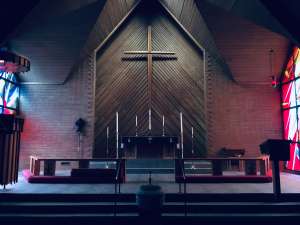Table of Contents
When a loved one passes away, families are faced with crucial decisions regarding their final arrangements. Funeral homes and crematoriums play distinct yet interconnected roles in this process, providing essential services and support during a difficult time. In this blog post, we will explore the roles of funeral homes and crematoriums, comparing and contrasting their functions, services, and the emotional support they offer to grieving families.
The Role of a Funeral Home
A funeral home serves as a central hub for various end-of-life services and arrangements. Its primary focus is to assist families in planning and organizing funeral ceremonies and related activities. Here are some key aspects of a funeral home’s role:
- Consultation and Planning: Funeral directors guide families through the entire funeral planning process. They help in selecting burial or cremation options, caskets or urns, memorial services, and other elements of the ceremony. Funeral homes offer a range of packages to accommodate different budgets and preferences.
- Embalming and Body Preparation: Funeral homes provide embalming services, preserving the body for visitation and funeral services. They also handle other aspects of body preparation, ensuring the deceased looks peaceful and dignified during the viewing and the funeral.
- Visitation and Memorial Services: Funeral homes often have dedicated spaces for visitation and memorial services. They create a serene atmosphere where family and friends can pay their respects, share memories, and find solace in the company of others who are mourning the loss.
- Transportation and Logistics: Funeral homes coordinate the transportation of the deceased from the place of death to the funeral home, and later to the cemetery or crematorium. They handle the necessary paperwork, permits, and legal documentation, ensuring a smooth and seamless process for the family.
- Grief Support: Funeral directors and staff are trained to provide emotional support and counseling to grieving families. They offer resources, referrals to support groups, and guidance to help families navigate the grieving process.

The Role of a Crematorium
A crematorium is a facility specifically designed for the cremation process, where the deceased is respectfully reduced to ashes. Here are the primary functions of a crematorium:
- Cremation Process: Crematoriums are equipped with specialized furnaces designed to handle cremations safely and efficiently. The body is placed inside a cremation chamber, where it undergoes a process of intense heat and flame, reducing it to bone fragments and ashes.
- Handling Cremated Remains: After the cremation process, the remains are carefully collected, processed, and placed in an urn or container. Crematoriums offer a variety of urn options, including biodegradable urns for eco-friendly burials or scattering ceremonies.
- Scattering and Interment Services: Many crematoriums provide services for scattering ashes in designated areas, such as memorial gardens, or facilitate interment in columbarium niches. They assist families in choosing appropriate locations and arranging the scattering or interment ceremonies.
- Regulatory Compliance: Crematoriums adhere to strict regulations and environmental guidelines to ensure the safe and ethical handling of cremations. They follow established protocols and maintain high standards of professionalism and integrity.
- Support and Guidance: Crematorium staff members are trained to offer support and guidance to families regarding the handling and disposal of cremated remains. They provide information on various options, including scattering, interment, or keeping the ashes at home in a decorative urn.

Comparing and Contrasting
- Services Offered:
- Funeral Home: Funeral homes offer a wide range of services, including consultation, embalming, visitation, and coordination of the funeral ceremony.
- Crematorium: Crematoriums primarily focus on the cremation process, handling the deceased with dignity and respect, and assisting with the handling and disposal of cremated remains.
- Physical Facilities:
- Funeral Home: Funeral homes often have dedicated spaces for visitation, memorial services, and family gatherings. They provide a comforting atmosphere for families and friends to pay their respects.
- Crematorium: Crematoriums are equipped with specialized equipment and facilities designed specifically for the cremation process, ensuring safety and compliance with regulations.
- Emotional Support:
- Funeral Home: Funeral directors and staff at funeral homes are trained to provide emotional support and grief counseling to families. They offer resources and assistance in coping with the loss.
- Crematorium: Crematorium staff members provide guidance and support regarding the handling and disposition of cremated remains. They help families make informed decisions about scattering, interment, or keeping the ashes.
- Customization and Personalization:
- Funeral Home: Funeral homes offer a wide range of customizable options for funeral services, allowing families to personalize the ceremony according to the wishes of the deceased and their loved ones.
- Crematorium: While the cremation process itself is standardized, crematoriums assist families in choosing personalized urns and memorialization options, providing a sense of customization in the final disposition of remains.
- Environmental Impact:
- Funeral Home: Funeral homes, particularly those offering green burial options, focus on eco-friendly practices such as biodegradable caskets and natural burial grounds. They promote sustainable and environmentally conscious choices.
- Crematorium: Crematoriums, while energy-intensive, have introduced eco-friendly measures such as aquamation (water cremation) and filtration systems to minimize emissions and environmental impact.
Conclusion
Funeral homes and crematoriums both play vital roles in the end-of-life process, offering essential services and emotional support to grieving families. Funeral homes guide families through the intricate details of planning and organizing funeral ceremonies, providing comfort and compassion during a challenging time. Crematoriums, on the other hand, handle the cremation process with utmost care and professionalism, assisting families in the proper disposition of cremated remains.
Understanding the distinct roles and services provided by funeral homes and crematoriums empowers families to make informed decisions that align with their beliefs, preferences, and budgetary constraints. Whether choosing a traditional funeral with burial or opting for cremation and personalized memorialization, both facilities work together to ensure that the final farewell honors the deceased and provides solace to those left behind. Ultimately, the compassionate support offered by funeral professionals remains a guiding light for families navigating the difficult journey of loss and remembrance.
If you are interested in cremation services in Philadelphia for you or a loved one, contact one of our local cremation providers:
Arlington, Brooklyn, Cleveland, Columbus, Dallas, Detroit, Forth Worth, Houston, Indianapolis, Louisville, Milwaukee, Minneapolis, New York City, Phoenix, Pittsburgh, Queens, San Antonio, St. Paul.
